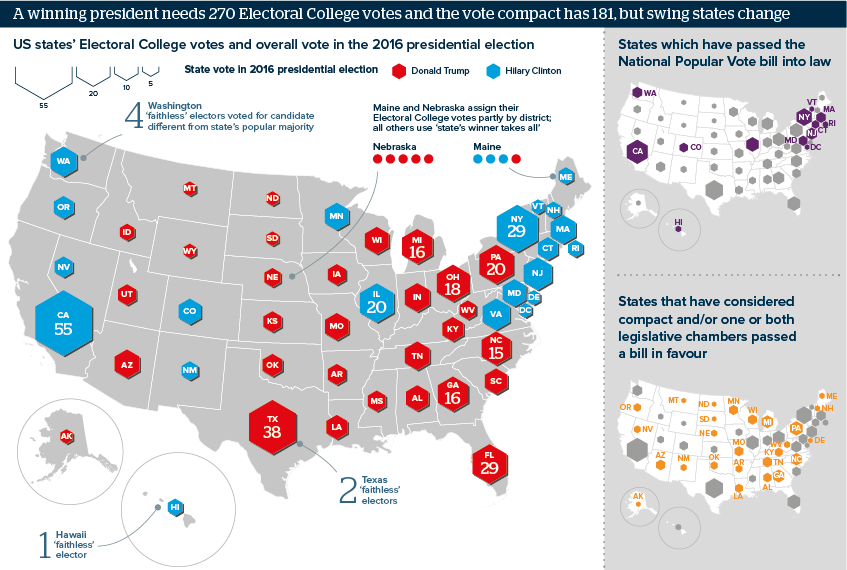US vote deal aims to avoid Electoral College in 2020
US presidents are chosen via the Electoral College, but critics argue that is bad for governance
Source: www.nationalpopularvote.com; Oxford Analytica
Outlook
In March, Senator Elizabeth Warren, campaigning for her party’s 2020 US presidential nomination, suggested the Electoral College system meant some votes were more powerful than others, and so should be abolished.
The system, as intended, stops large states swamping small states, but means some votes are effectively marginalised. Reforming the Electoral College has been discussed for years.
A nationwide compact, spearheaded by states and the Nationwide Popular Vote group, would see signatories agree to issue their Electoral College votes to the presidential candidate with the most popular votes nationally. The effort faces almost certain political and legal challenges.
Impacts
- For 270 votes, the compact needs Republican and swing-states; this is unlikely as it would reduce their power and influence.
- States that support the presidential candidate to victory may have an advantage in securing presidential campaign and policy attention.
- States choose how they select their Electoral College votes; they could make reforms locally, including moving to district-based systems.
- Any large-scale Electoral College reform would alter the balance of how US policy is made and from where political influence emerges.
See also
- US court ruling will tighten presidential elections - Jul 7, 2020
- US inversion risk may mean long-term political trouble - Dec 10, 2019
- US vote reform calls to grow by 2020 - Mar 21, 2019
- More graphic analysis
